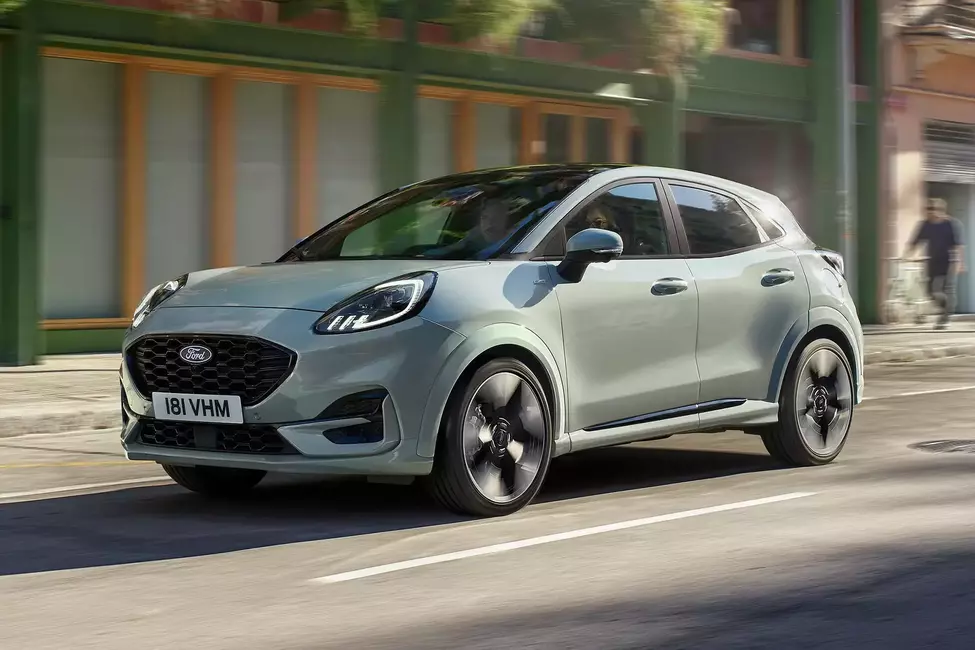Guarantor car finance

Guarantor car finance: cheap monthly payments for young drivers
If you’re young and struggling to get finance for a car, teaming up with someone with a good credit score could help.
If you’re young, you may find getting car finance somewhat tricky. Not having a demonstrable history of borrowing and repaying money – a credit score – can make lenders less likely to give you a loan or credit. However, if you’ve got a friend or family member that has such a record, you could consider guarantor car finance.
Teaming up with someone that has a good credit score makes lenders far more likely to approve your car finance application, because the lender can be more confident that they’ll get their money back.
Your friend or family member becomes your guarantor, promising to pay back the money you owe if you cannot. They’ll be held responsible for your monthly repayments if you can’t keep them up – which means your guarantor needs to be someone that trusts you.
You can apply for guarantor finance on both new and used cars, and you can also use it with new car offers like free insurance. Note, though, that it’s designed for those with little credit history rather than those that don’t have money – you’ll need to make the repayments on time each month. If you don’t, your guarantor will have to, and if they fail to make the payments too then both of your credit scores will be damaged. That could make it harder for both of you to get credit or loans in the future.
All this means that both of you must understand what you’re signing up for. However, guarantor finance can be a relatively straightforward way of driving a newer car than you might otherwise be able to afford.
How does guarantor car finance work?
Guarantor car finance represents a safety net for lenders, and an opportunity for you, as someone with little to no credit history, to borrow money for a car. Having a guarantor should be able to get you a far better interest rate, and therefore more affordable monthly repayments, than if you were applying for finance on your own.
Your guarantor will need to be someone reliable, with a history of repaying debt on time through credit cards or a mortgage. They’ll often need to own their own home, too.
Guarantors are normally close friends or family members. Usually they won’t need to do anything once the contract has been signed, and as long as you can pay on time each month, the finance will be paid off in the usual way.
Applying for guarantor finance
Before you default to guarantor finance when looking for a car as a young driver, consider that you may be accepted on your own. You only need to look at guarantor finance if getting a deal solely in your own name is looking tricky. Usually, a young driver’s guarantor will be a parent.
Making your payments on time will help establish a history of financial responsibility and improve your credit score, which may well mean that you don’t need a guarantor the next time that you apply for finance.
Both Personal Contract Purchase (PCP) and Hire Purchase (HP) car finance deals are available with a guarantor. These are the most common types of car finance and give you a range of choices depending on whether you want to own the car at the end of the deal.
A Guarantor PCP deal is likely to be the most affordable way of driving a new or used car, because your monthly payments only go towards the car’s depreciation over the length of the contract, rather than the whole value of the car. This means lower monthly payments than an equivalent HP deal. However, you won’t own the car at the end of the contract unless you pay an optional final payment, which can be quite a bit. If you don’t want to pay that (either outright or by refinancing), you can simply hand the car back or trade it in for another one.
HP usually costs more per month, but you’ll own the car outright at the end of the contract, and you’ll likely pay less overall than a PCP contract where you buy the car at the end, as there’s less interest payable over the course of the contract.
Can I get guarantor car finance if I’m under 18?
Bad news for 17 year olds – you’re unlikely to be able to get car finance until you’re 18. If you’re 17 and want a car, you could use this year to save a larger deposit for when you turn 18 and become eligible. This could give you access to lower interest rates and reduce your monthly payments on a future deal.
Once you hit 18, you can apply for a range of different finance options. As well as PCP and HP, you could consider a car subscription as a simple way of managing running costs.
You may not need a guarantor at 18 – if you have a regular income and are listed on the electoral roll, lenders may be satisfied. But your lack of credit history may still be a problem, in which case finding a guarantor is likely to help. Taking out guarantor finance and paying it back on time will help build up your credit score and make it easier to take out finance in the future.
Once you’re 19 or older, you’re more likely to have a credit history, which should give you a higher chance of car finance at a low interest rate. But the guarantor finance route will still be an option.
Who can become a guarantor?
Although guarantors for young drivers are generally parents or close family friends, they can in theory be anyone who meets the financial criteria. They usually need to be 21 or over (although some lenders will accept 18-year-olds) and have a good credit history. They’ll also need to be financially stable so that they can meet payments, and be able to prove that to the lender.
Lenders will check a guarantor’s credit history in the same way as they would if the guarantor were taking out finance in their own name. They’ll usually need to be in full-time employment and have a UK bank account. Some lenders (but not all) will also insist that a guarantor is a homeowner.
Being a guarantor is more than just helping out a friend or relative. By becoming a guarantor, you are taking responsibility for the debt to the lender if the borrower doesn’t make their payments. If you don’t make the outstanding payments should the borrower fail to, you will be in the same situation – at risk of court action or asset seizure. You must be ready and able to make a missed payment every month.
It’s also important to note that if the main borrower fails to make a payment, it’ll likely be noted on both their credit history and that of the guarantor – even if the guarantor makes the payment on time. This could affect future borrowing chances. As such, it’s important for the main borrower and the guarantor to keep in touch and highlight any issues early. It’s far better for the guarantor to help the main borrower pay on time than for a payment to be missed.
Once someone has signed a contract as a guarantor, they can’t opt out – they need to be able to help no matter what happens. This could include responsibility in the event of the main borrower’s death, although this depends on the terms and conditions of the specific deal. If in doubt, check with the lender before signing anything.
It’s also worth considering the impact of the deal on your relationship with your guarantor. Being called upon to bail out someone financially can put a strain on such a relationship, so make sure it can withstand the pressure should any financial issues arise.
What if I stop repaying a guarantor car finance deal?
If you think you might struggle to meet your repayments on a guarantor finance deal, the first step should be to speak to the lender. They may be able to make arrangements to stop you going into arrears, which is to be avoided as much as possible – missing payments can damage your credit history making it difficult to get finance or credit in the future.
If you do miss your payment, the lender will likely contact you first to see if there’s been an error or emergency. They’ll also likely contract the guarantor to chase the unpaid debt.
If you both fail to pay, the car will likely be seized and you both may end up in court, facing county court judgements and, of course, damaged credit scores. It’s best therefore to put money aside at the start of the contract to cover monthly payment in case you encounter any issues. And again, talk to the lender as soon as possible if you feel you might start to struggle.
Browse our most popular models

24/09/2024
Best Car Deals for New and Used Cars
Whether you're looking for the best PCP deal, huge savings with a great car leasing deal or car finance discounts, we’ve searched to find the best car deals for you.
Best 0% APR Car Finance Deals
If you're looking for a 0% car finance deal on a new car, you've come to the right place. We've searched to find the best 0 interest finance car deals out there to help you save money.
Best PCP Car Deals
Personal Contract Purchase (also known as PCP) could allow you to get your hands on a new car without needing to stump up a significant sum of cash all at once. And to help you out, we've rounded up all the best PCP car deals on offer in the UK today.
Promotions
Trustpilot Reviews
Get our latest advice, news and offers
Keep me updated by email with the latest advice, news and offers from heycar.
By submitting you agree to our privacy policy














